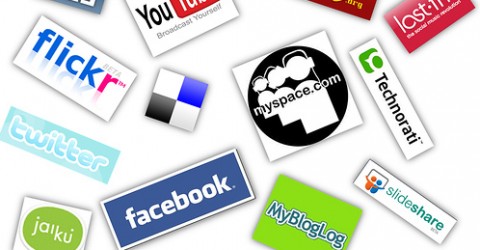 * What would be your course of action if you purchased a company for 1.65 billion dollars and it only brought in 240 million this year and grows deeper in debt everyday? I would say what a tragic mishap! I would sell it and try my best to cut my further losses and never make that mistake again. But that’s just me and that’s definitely not Google.com. Who made this decision three years ago when they purchased the number one video site search engine Youtube.com
* What would be your course of action if you purchased a company for 1.65 billion dollars and it only brought in 240 million this year and grows deeper in debt everyday? I would say what a tragic mishap! I would sell it and try my best to cut my further losses and never make that mistake again. But that’s just me and that’s definitely not Google.com. Who made this decision three years ago when they purchased the number one video site search engine Youtube.com
So let’s dwell further into Google’s love story with Youtube. Like I said; Youtube is lying like a lame horse right now, any farm owner would have taken that horse outside and put it down. But Google has many plans to revive Youtube and make it the forerunner as the premier search engine site.
There are a few problems with the site. One is that the video sharing site has failed to attract quality programming
While Google doesn’t break out exact company expenses, what is known is that Youtube is the largest video platform in the world. Users upload 20 hours of video to it each minute, at tremendous cost to Google (That’s a lot of server space and maintenance on a monthly basis…I’d say in the tens of millions)
Youtube remains a repository for long tail content that appeals to a niche audience: clips of cats chasing dogs or the newest death defying stunt (they do have mass audience viewings like Michael Jackson, Susan Boyle which attracted millions)
But despite Google repeated efforts Youtube has failed to create an environment for professional video content where many advertisers are clamoring to put their money right now.
* However Hulu- A joint venture from GE’s NBC, News Corp’s Fox and now Disney’s ABC has catapulted to success among advertisers and consumers. With it sharp media player and a very comfortable and easy to use interface that feels like a traditional television.
Hulu has become the second most watched video site after….you guessed it, Youtube.
Launched in March 2008 it began hosting episodes of “Saturday night live” and “The Office”
A visit to Youtube showed it was airing original series like “Bewitched” (Although my favorite series “firefly” is aired in sections by users of the site)
So with the success of Hulu and the clear and visible mistake of the cash guzzling purchase of Youtube, you would think Google would back down and give this site up. But in fact the parent company is doubling down. A report in fortune magazine says that Google has moved some of its brightest executives to Youtube offices in hope of turning it around. Tech Guru’s are also tweaking the technology that sorts and spits out Youtube content to make it easier for marketers to buy sponsored search links and simultaneously run advertising, as of now the site is now able to make money on 13% of its content up from 3% last year.
Google’s very cost conscious finance chief was also quoted as being very upbeat on recent earnings call saying “soon we’ll actually see a very profitable and good business.
 * From my perspective Google ambitions for Youtube have nothing to do with cute cat clips or viral web video, and everything to do with data. Video is still in its teenage years on the web, but it is growing up quickly. Laptops and iphones now have quality webcams and teenagers increasingly use video instead of email to send each other messages, posting the clips on their Facebook walls.
* From my perspective Google ambitions for Youtube have nothing to do with cute cat clips or viral web video, and everything to do with data. Video is still in its teenage years on the web, but it is growing up quickly. Laptops and iphones now have quality webcams and teenagers increasingly use video instead of email to send each other messages, posting the clips on their Facebook walls.
So while Google aims (and prays!) to profit from the video on the site today, it ultimately is more interested in making sure that the company becomes the primary platform use to generate, store, sort and view all their video content and communications. (This, by the way, is exactly the kind of wide-reaching power that concerns privacy and antitrust advocates)
*So how do you stop the bleeding and make a profit?
That’s the question for Jawed Karim who joined the Google team in 2005. His quest is to make money from Youtube. Karim was the one at Google who came up with Adwords, Google biggest revenue, which lets advertisers pay a fee each time user’s click on their links. Google hopes he can work that same magic again.
His first move was to create different types of ads such as small ads that pop up inside videos; it has also added click-to-buy options to some videos(Watch Michael Jackson’s “Billie jean” on the site and you have the option to buy the song from Amazon)
Either way you cut it, Youtube is far from fixed and in my opinion losing ground against the competition. Looking at Youtube as a whole, how much content is produced by network studios? The stuff that is most easily monetized today. And if Google merely wanted to sell ads against its inventory of online videos, that might be a problem since it costs the company way more to host and deliver videos that it currently makes on video ads (A credit Suisse report suggests that the site spends $375 million a year on network infrastructure alone; a recent study by strategic outsourcing adviser Ramp Rate puts the annual costs at closer to $83 million)
 Well for all of Google’s Youtube woes. Earlier this year Youtube quietly became the second biggest search engine on the web; only Google.com is larger
Well for all of Google’s Youtube woes. Earlier this year Youtube quietly became the second biggest search engine on the web; only Google.com is larger
If video online becomes pervasive and consumers first gravitate to video searches rather than look for articles or websites it may be only a matter of time before the long tail wags the dog
* In my opinion, while I am not a tech guru and can’t fully fathom the risks that are involved with paying billions of dollars for a company only to make chump change in profit. I can say that I am a fan of Youtube and of course want to see it succeed, but like any pioneer Youtube was the first to do what they did. They gave any one and everyone a place to show their face(not necessarily talent) and when other companies or groups stand outside the box and analyze what they like and dislike about there competition you can always find better ways to do it and profit from it. Google (Youtube of course) need to step out of there singular box and reassess what works and doesn’t work. And while Youtube will never be the money giant Google is, there is always a chance it can change the playing field in terms of advertisement and how people asses how they market or advertise themselves!


